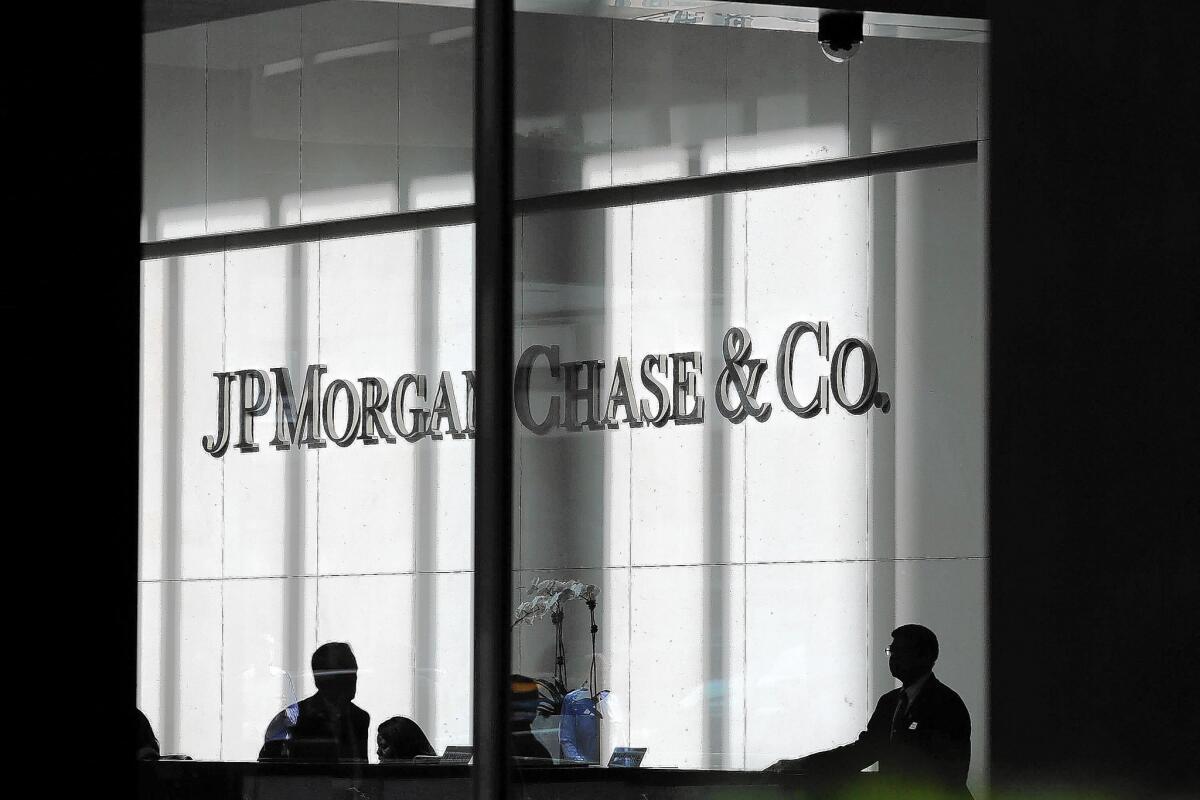Too-big-to-fail banks’ living wills are inadequate, regulators say

Six years after the financial crisis, regulators said that 11 banks deemed too big to fail still have produced no workable procedures to help regulators shut them down should they ever reach the brink of failure.
The Federal Reserve and the Federal Deposit Insurance Corp. chastised Wall Street financial institutions in rejecting the plans Tuesday.
The regulators criticized “unrealistic or inadequately supported assumptions” and the “failure to make, or even to identify, the kinds of changes in firm structure and practices that would be necessary to enhance the prospects for orderly resolution.”
The requirement for these resolution plans, or living wills, as they are informally known, was a key requirement of the 2010 Dodd-Frank financial reform law. The intent was to avoid a replay of the massive taxpayer bailout of banks in the financial crisis that erupted in 2008 amid the Great Recession.
At the time, lawmakers as well as the public were outraged at shoddy and risky banking practices that left the government shelling out hundreds of billions of dollars to prop up the nation’s financial infrastructure.
Under Dodd-Frank, regulators instructed major banks nearly three years ago to file plans. The largest and most complex banks submitted a first round of living wills in 2012 and had to send in a second round of responses last year.
In strong language, the regulators reprimanded Wall Street over the latest batch of living wills. The FDIC said that the plans were “not credible” and didn’t “facilitate an orderly resolution under the U.S. Bankruptcy Code.”
The Fed said it had ordered the 11 banks to “take immediate action to improve their resolvability and reflect those improvements in their 2015 plans.” The regulators’ letters to the banks, with specific criticisms of their proposals, were deemed private and were not released.
The 11 banks are the first wave of institutions required to file living wills, with additional wind-down plans required from other big banks and non-bank financial firms considered to pose significant threats to the economy should they melt down.
The 11 included well-known retail giants Bank of America Corp., JPMorgan Chase & Co. and Citigroup Inc., as well as eight other Wall Street firms: Goldman Sachs Group Inc., Morgan Stanley, Bank of New York Mellon Corp., Barclays, Credit Suisse Group, Deutsche Bank, State Street Corp. and UBS.
Representatives of those banks declined to comment, but the Financial Services Roundtable, a lobbying group for major financial firms, snapped back at regulators, suggesting they had failed to provide enough direction to the banks.
“Financial companies have more capital and are stronger than before the crisis and want clear guidance to ensure they are meeting regulatory expectations,” the Roundtable said.
Another trade group, the Financial Services Forum, said the industry “not only welcomes, but needs comprehensive and substantive feedback from the regulators on the living will process.”
“The industry remains strongly committed to ensuring the financial system is less complex [and is] safe, transparent, accountable and capable of fulfilling its role of promoting economic growth and weathering substantial stress scenarios without taxpayer dollars being at risk,” the group said.
FDIC Chairman Martin J. Gruenberg said the regulators had ordered the banks to make “specific substantive changes,” including simplifying their legal structures.
If the living wills still fail to pass muster when they are resubmitted next year, regulators would first make more specific demands and could then impose more stringent requirements. If after two years the banks had not submitted acceptable plans, the regulators could unilaterally force the banks to split themselves up.
The latter idea has generated a measure of support from both sides of the aisle in Congress.
Last month, Sens. Elizabeth Warren and John McCain, along with two colleagues, introduced legislation to reinstate a former law that had separated commercial banks that offered checking and savings accounts from other firms that offered riskier financial services, such as investment banking and swaps dealing.
The proposed law sponsored by Warren, a liberal Massachusetts Democrat, and McCain, a conservative Arizonan and former Republican candidate for president, is considered unlikely to pass Congress.
But it tapped into the frustrations of many critics dismayed at how the banks have grown far larger since the financial system nearly melted down.
“A report by the Federal Reserve Bank of Dallas estimated that the financial crisis cost us as much as $14 trillion. That’s $120,000 for every American household,” the senators said in introducing the bill.
Meanwhile, they noted: “Wall Street banks continue to hum along as they did before the crisis — too big to fail and, in many cases, potentially exposing the economy to the risk of systemic failure.”
Warren and McCain couldn’t be reached for comment Tuesday.
Twitter: @ScottReckard






